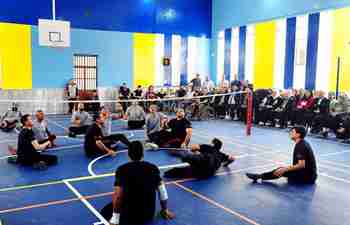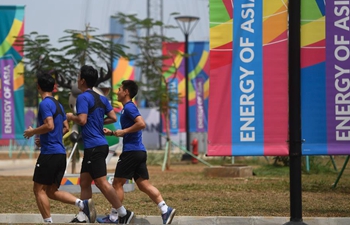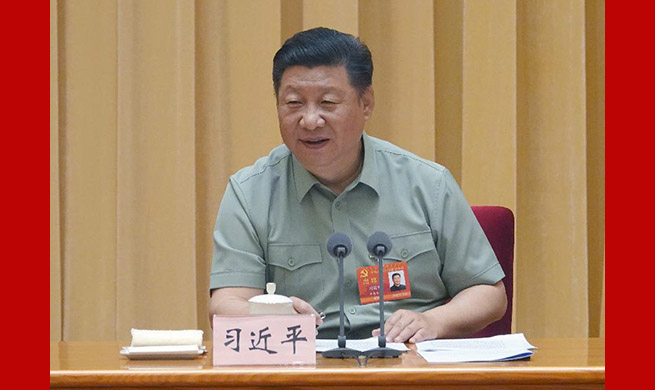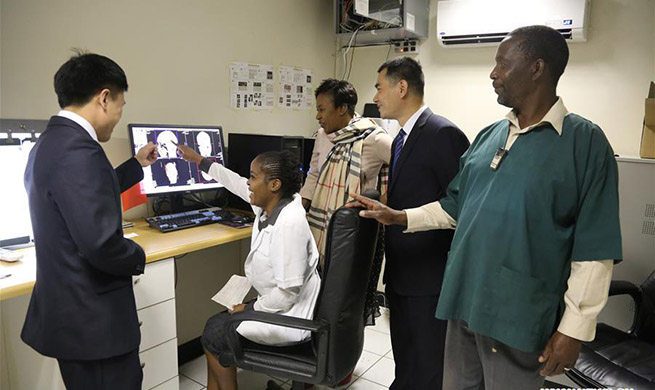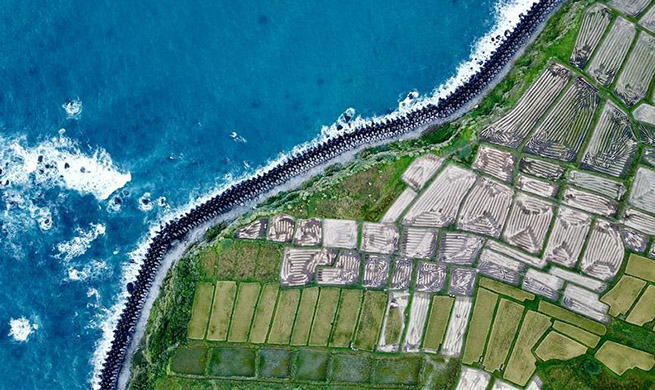GAZA, Aug. 19 (Xinhua) -- On the eve of Muslims' al-Adha feast, livestock markets in the Palestinian Gaza Strip has witnessed a low customer turnout due to the severe economic deterioration caused by the ongoing Israeli blockade which has been in place for more than a decade.
"Less people are buying sacrificial animals ahead of the feast because of the difficult economic conditions and the high rates of poverty and unemployment," livestock merchant Saed al-Batniji complained.
Eid al-Adha, the feast of sacrifice, is celebrated by Muslims worldwide in memory of Prophet Abraham's near-sacrifice of his own son as ordered by God.
It comes at the end of the pilgrimage rituals in Saudi Arabia as Muslims slaughter sheep, goats, camels or calves as a means of getting closer to Allah (God).
Al-Batniji told Xinhua that the market is packed with livestock of different kinds, "but people do not have money to buy."
"The long years of the Israeli blockade have decreased the purchasing power of the population. So far I have sold less than one-third of what I used to sell in recent years," he added.
The coastal enclave has been also suffering from a political division that has resulted by Hamas violent takeover of Gaza.
According to the latest data of Palestinian Central Bureau of Statistics, unemployment in Gaza Strip reached 53.7 percent compared with 19.1 percent in the West Bank.
The blockade has pushed Gaza's two million populations deeper into poverty as economists in Gaza point out that extreme poverty hit 53 percent in 2017 compared with 37 percent in 2011.
This year, the average price of lamb in Gaza is 350 U.S. dollars, while the price of a share in a calf stands at 450 dollars, which exceeds the capacity of a large proportion of Palestinians in Gaza, making the markets experiencing an unprecedented recession.
Livestock sellers say a large proportion of people are buying animals in installments because of the limited salaries of Palestinian Authority employees who receive 50 percent of their salaries or Hamas employees who are paid 40 percent of their payments.
In recent years, Gaza residents have adopted a sharing system to buy a sacrifice due to the worsening financial situation of the majority of the population.
Through this system, consumers can buy shares in a cow or a calf and also can pay on installments after agreeing with livestock merchants.
Rafat Ashour, an engineer from Gaza, went to join six other people in buying a sacrifice this year.
Ashour told Xinhua that he is keen to sacrifice every feast since it is an important Islamic ritual for all financially capable Muslims.
According to the feast rituals, the meat is divided into three thirds, one distributed to less fortunate families, another for relatives and the last for the family to cook during the four-day feast.
Gaza's local production of livestock during the past few years covered 40 percent of the domestic market needs. However, most of the livestock in Gaza now are imported from Europe and enter the blockaded territory through Israel.
Head of livestock in Gaza's agriculture ministry, Taher Abu Ahmed, said the needs of the Gaza Strip of sacrificial cattle annually are estimated at 8,000 calves and around 20,000 sheep, adding that Gaza consumed 14,000 calves and 30,000 sheep during last year's sacrifice holiday.
Abu Ahmed stressed that this year's demand is low because of the higher rates of poverty and the inflating prices of livestock globally in addition to the costs of growing and transporting the animals.





